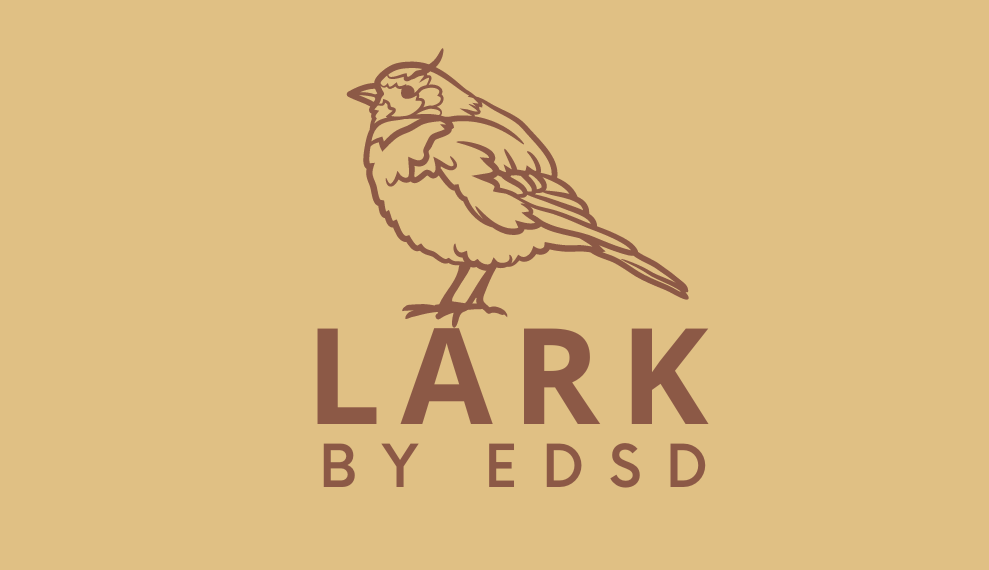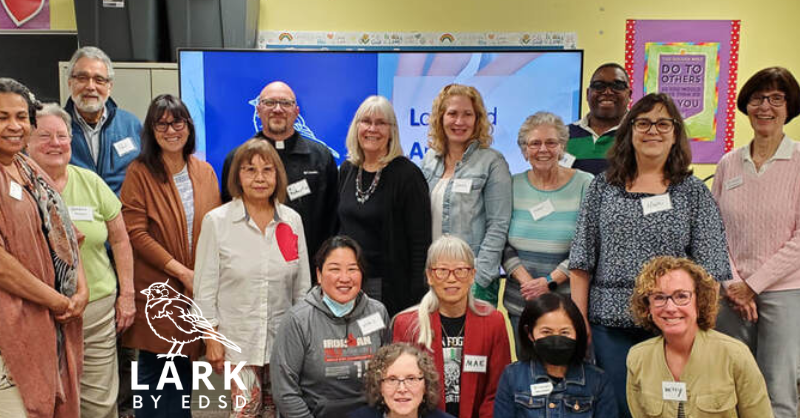LARK: Localized Anti-Racism Knowledge

In various cultures, larks are said to symbolize, represent, and inspire many things. In some Latin American cultures, for example, they are believed to advise humans on how to improve their lives. In Japan, the lark represents change, adventure, and courage when exploring the unknown. For the indigenous Lakota & Dakota traditions, the lark represents renewal and vitality; for the people in the Episcopal Diocese of San Diego, LARK stands for Localized Anti-Racism Knowledge, a new program developed by the Diocese to help us better understand our local history and background.
This program will give you a lark’s-eye view of the stories of others as we explore ways to understand and practice anti-racism in our own diocese.
The Localized Anti-Racism Knowledge (LARK) program, developed by Mae Chao and Thérèse Carmona, is a unique initiative tailored to understanding the racial history and current racial dynamics of our region. LARK is designed as a two-day workshop set to take an in-depth look at the racial and ethnic history of the region. By interpreting local issues through a wide spectrum of narratives and perspectives, this innovative program aims to expose participants to a multitude of stories and viewpoints–fostering a broader and more comprehensive understanding of the region’s racial landscape.
After attending the alpha test of the program, Bishop Susan said, “This program will knock your socks off.” 
One of the key objectives of LARK is to challenge and expand the single-story perception, a perspective that tends to oversimplify and reduce complex issues by viewing them through a single lens. By encouraging participants to consider the diverse experiences, histories, and perspectives present in their local context, LARK promotes a richer, more nuanced understanding of race-related issues. This awareness, in turn, fosters empathy and mutual respect, ultimately helping to bridge racial and ethnic divides in the community.
“I was surprised at how useful this was. I thought the questions that facilitators asked were thoughtful, and the content was geared a lot towards unconscious bias & systemic racism. I normally get nervous that these spaces will not be safe for people of color, but the way you both facilitated (including calling on people of color to speak first at times) promoted a space of equity,” said one participant.
Bishop Susan said, “I learned so much and was challenged to take concrete steps forward. I hope that more and more people will take the opportunity to participate in LARK as it becomes available throughout the diocese.”
Larks (the bird) are sometimes mentioned as representing the shift from night to day–the break of a new dawn. They are unique among birds in that they sing not only while perched but also in flight, and a lark’s song is interpreted by some as a promise of better times ahead. In much the same way, the LARK program signifies a new horizon in our diocese, a promise of a brighter, more inclusive future.
The LARK program is a crucial step toward creating a new, informed, and empathetic community within our diocese. By spotlighting the local racial history and bringing forth multiple narratives that often remain unheard, LARK equips its participants with the knowledge to challenge racial biases and prejudices. Through its mission, LARK not only contributes to building a more inclusive community, but it also challenges participants to commit to specific action to help combat racism and advance racial reconciliation and justice within our diocesan region.
Whether you are a novice or veteran in the areas of racial justice and reconciliation, whether you are a Sacred Ground alum, current Sacred Ground participant, or have never even heard of Sacred Ground, this LARK workshop is for you! All are encouraged to attend, and all are welcome!
For more information, please contact Rachel Amasing at rambasing@edsd.org